Somewhat stubborn and very active, the Manchester Terrier is a smart and fun apartment dweller

Manchester Terrier Spotlight
- Originally bred to hunt and kill rats
- Appear in either the Toy and Standard varieties
- Low maintenance in terms of grooming
- Require firm, confident owners
- Great breed of choice for apartment dwellers
- Do not do well in extremely cold weather
- Susceptible to weight gain if not sufficiently exercised
- Fun and smart
History
The Manchester Terrier was developed in the Manchester District of England for the purpose of being a ratter and a rabbit hunting dog for society’s non-elite. It is the oldest known of the terrier breeds and has been nicknamed the “rat terrier” due to its impressive ability to catch rats and mice.
The breed is said to have been developed by a man named John Hulme who crossed a Whippet and a Black and Tan Terrier. Rats were running rampant in the city at the time and posed a significant risk to the population’s health. Development of the Manchester Terrier did not fix the city’s rat problem but it certainly made a dent.
Rat hunting as a sport was eventually banned but Manchester Terriers were still used to keep rats out of buildings. There was a point at which the breed was crossed with Chihuahuas in an attempt to further decrease the Manchester Terrier’s size, but the resulting dogs were not healthy or durable.
The British Manchester Terrier Club was formed in 1937 and the Toy and Standard versions of the breed received American Kennel Club recognition in 1886 and 1887, respectively. Th small terrier breed is not very common in the United States today as it is currently ranked the 142nd most popular dog breed on the AKC’s list.
Personality & Temperament
Manchester Terriers are intelligent, observant and animated. These attention-loving dogs are quite social and love to be around their families, so those who have busy lives and are constantly on the go may want to consider other less social breeds.
Dogs that are left alone too often and that do not receive sufficient social time with their families are likely to become bored and destructive, as well as to display behavioral problems. Properly socialized Manchester Terriers are friendly toward strangers but they are loyal and devoted to their owners above all else. Their intelligence and constant desire to learn makes them a pleasure to train. They excel in agility courses and obedience training.
A properly trained and socialized Manchester Terrier is a pleasure to own and to be around. Their small size makes them prone to developing small dog syndrome as owners tend to baby small dogs and let them have their way, but the consequences of this are never good and can be difficult to undo.
Separation anxiety, excessive barking, dog aggression and many undesirable traits associated with small dog syndrome can be avoided when the Manchester Terrier’s owner is consistent, confident and firm. Owners should make it clear that they are the leader of the pack rather than the other way around. The result is a well-rounded Manchester Terrier.
Appearance & Grooming
The Manchester Terrier comes in both the Toy and Standard varieties. The small, compact body is strong and smooth to the touch. The triangular-shaped ears are semi-erect unless cropped, which is illegal in some countries.
The ears sit atop the long, narrow head toward the back of the top of the skull. The eyes are small, dark and beady. The circumference of the tail is larger at the base and narrows as it approaches the tip. The coat is almost always black with distinct tan markings.
The breed is quite low maintenance when it comes to grooming needs. Manchester Terriers are a low-shedding breed so weekly or bi-weekly grooming will suffice to keep the dog’s coat shiny, healthy and free of any loose dead hair. The teeth should be brushed every other day or every few days to remove tartar buildup and prevent dental problems.
The nails should be trimmed once or twice per month to prevent floors, furniture and people from accidentally getting scratched. The ears are prone to developing infections and should be regularly examined and cleaned. Dogs that are accustomed to being groomed at a young age will come to enjoy it, which can provide a pleasant opportunity for owner and dog to bond.
Health
- Autoimmune thyroiditis is the primary cause of hypothyroidism in dogs. It occurs when the dog’s immune system creates antibodies that work against the dog’s own thyroid gland cells, which forces the surviving cells to work even harder. Eventually, the thyroid gland will become significantly damaged and the dog will begin to display signs of deficiency, which include exhaustion, unexplained weight gain, skin problems and changes in behavior.
- von Willebrand disease (vWD) can occur in Manchester Terriers and other breeds, and it can also occur in people. It is a hereditary bleeding disorder and those with vWD are susceptible to nosebleeds are at risk of uncontrolled bleeding after experiencing trauma or having a surgical procedure done.
- Eye disease in dogs is a broad term as dogs can suffer from a variety of eye diseases with varying impacts on their health. Eye diseases are somewhat common in Manchester Terriers and can lead to discomfort and, in the most severe cases, vision impairment or loss. The most commonly occurring eye diseases for dogs are dry eye, cataracts and glaucoma.
- Heat bumps can easily occur in Manchester Terriers if a dog spends too much time in the sun or in a humid environment. They can become inflamed and can cause a great deal of pain and discomfort for the dog and can be made worse if the dog bites or scratches the area in an attempt to relieve the itch. Verify with your veterinarian that your dog is indeed suffering from heat rash before you attempt to treat the area with medicine or a soothing cream, as there are many skin disorders that can affect dogs and a great deal of them have similar symptoms and appearances.
Exercise & Care
Manchester Terriers are strong, agile dogs and they love opportunities to exercise these qualities. In addition to playtime and long walks, Manchester Terriers love to run around off-leash.
However, these activities should always be conducted in a safe and secure area such as a fenced-in yard or an enclosed dog park, as this breed has a very high prey drive and is likely to wander off in pursuit of small critters.
Other than the time they spend exercising outdoors under their owner’s supervision, Manchester Terriers should never be expected to sleep or live outdoors. Each individual dog will have varying nutritional needs so be sure to work closely with your breeder and veterinarian to determine a feeding routine and a type of food that works best for your dog.

 England
England

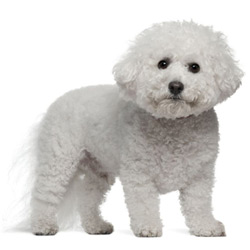

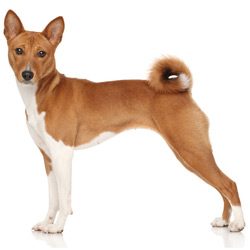

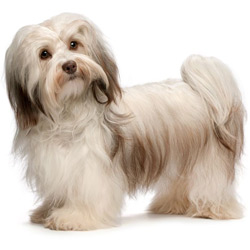
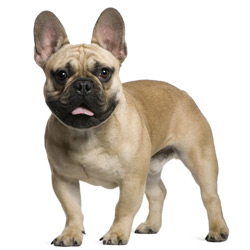

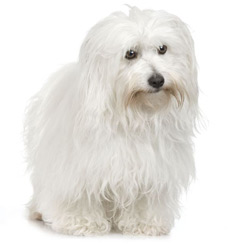
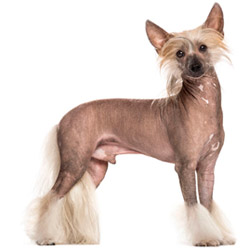
What do you think?